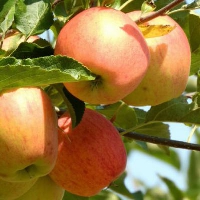If a child's performance is poor, he or she can repeat the grade, but it depends on the specific situation of the child. Don't follow blindly. Ask the child's will and respect the child. If the child says that he or she really needs to repeat the grade, our parents should give full support to help the child lay a solid foundation.
Can a child repeat a grade if his grades are not good
It is suggested that parents find the head teacher and ask the reason for their children's poor academic performance. Check whether the children have weak learning foundation or bad learning habits, such as not listening carefully in class and not completing homework after class. Parents should be aware of this.
If the child's learning foundation is poor, it is recommended to repeat the grade. For junior high school children, if their learning foundation is not solid enough, it will be difficult to learn. Then it is obvious that children will be unable to keep up with each step. Therefore, if children have poor learning foundation, it is necessary to repeat their studies.
If you repeat a grade, your child's knowledge structure will be stronger. For children, repetition can make their subject knowledge and knowledge structure more solid. After all, the same subject content, children repeat learning again, will certainly be better than just learning once.
I remember that in the first year of the first day of last year, there was a classmate in the class who had a poor learning foundation. The teacher suggested that the student should repeat the grade and study again. Later, the parents took the teacher's advice and let the student repeat the grade for another year. I have to say that after one year's study, the student's knowledge base is indeed much stronger than before.
Previously, the student could not fully understand and master the basic knowledge, so he would not apply what he learned. Later, after a year of repetition study, I gradually consolidated the subject knowledge and learned how to use knowledge points to solve problems.
In any case, it must be decided according to the actual situation of the child. You should know that what is suitable for other children may not be suitable for your children. Don't look at other children's children and try to make your own children repeat their grades. Children have individual differences. If parents participate in their children's learning, they can pay more attention to their children's learning and do not have to let their children repeat their grades.
What should I do if my child's grades are poor and he is tired of school
1. Less reprimand, more encouragement. The improvement of children's performance needs a process. Some parents directly scold their children when they see their children's poor performance. In fact, for children whose performance is not very good, excessive reprimand will make them more disgusted with learning.
As long as they feel that their children are working hard, they can use encouragement to give them more positive feedback. As time passes, they will find a sense of achievement in learning and naturally fall in love with learning.
2. You should learn to listen to your child's troubles in learning, share his worries and support him more, rather than easily defining him as stupid or lazy. In particular, he should not be compared with excellent children from other relatives.
Before reasoning with children, we must first establish an equal and respectful trust relationship with them, so that children will treat their parents as friends and be willing to follow their suggestions. Ask your child for advice when making decisions.
3. Improve learning interest:
① Work and rest. If you do homework for too long, it will reduce the efficiency of problem solving and greatly reduce the enthusiasm of children for learning. At this time, you can take your children out for a walk, listen to music, read books, and learn after your brain is relaxed. The efficiency will be much higher!
② Calm down. Sometimes if you care too much about a thing, it will not have any good results. On the contrary, when you treat a thing with a peaceful attitude, you can often get unexpected surprises. It should be the same with learning!
What to do if the junior high school children can't follow the teacher
A hint to parents: In junior high school, children who can learn by themselves should try to let their children learn ahead of time. Don't wait until they can't catch up. Self study is a key link. In fact, junior high school knowledge is not difficult, but it takes time to digest.
The main reason why junior high school students can't learn well is learning efficiency, not difficulty. Because compared with the knowledge in high school, junior high school is really a paediatrics. In junior high school, physics is the amount of knowledge in two years, and chemistry is the amount of knowledge in one year. In fact, it is not difficult to learn these two subjects. Children should be trained to have good logical thinking ability and the ability to summarize.

